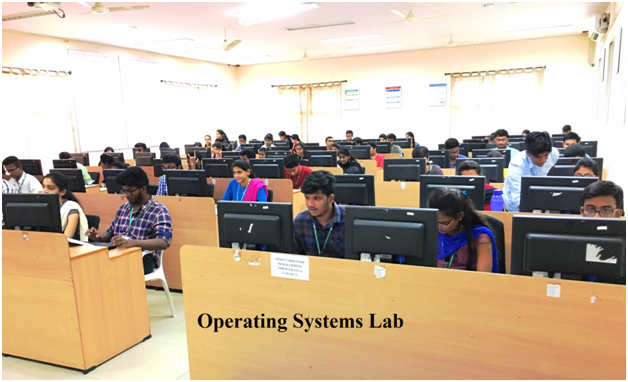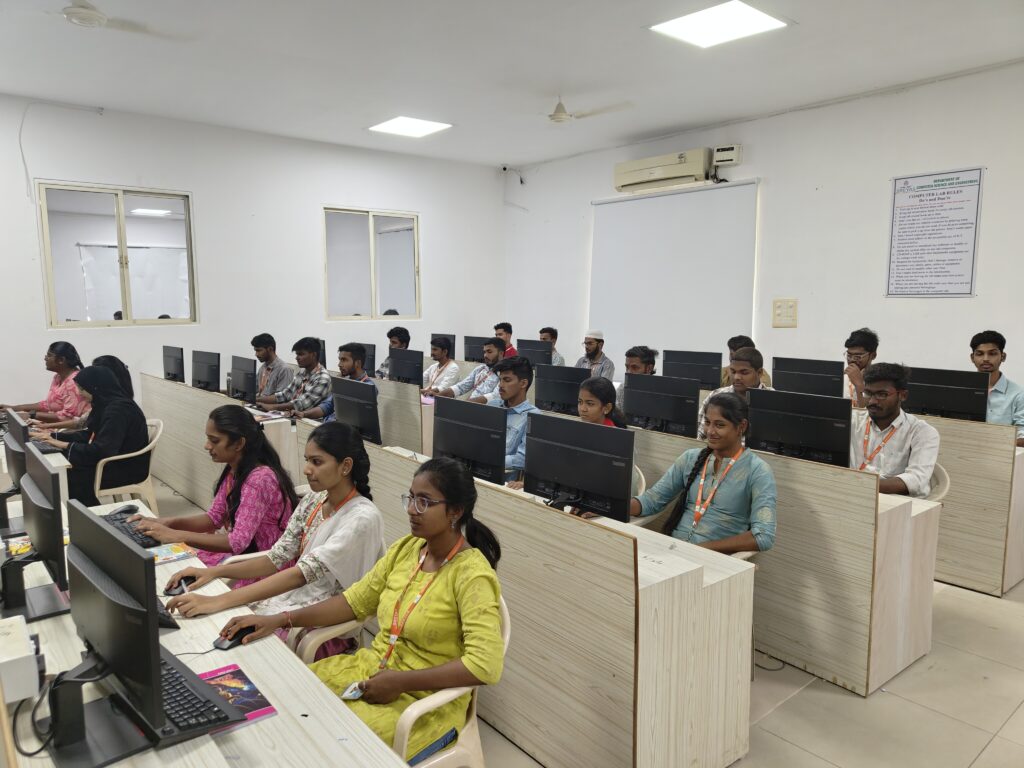Database Management Systems Lab:
This lab is a part of II B. Tech I semester for CSE – DS students. Database Management System or DBMS in short refers to the technology of storing and retrieving users’ data with utmost efficiency along with appropriate security measures. This lab enables the students to practice the concepts like E-R model, data models, data schemas, data independence.
ence, relational database design, storage and file structure and much more in the DBMS subject by developing a database. The student is expected to practice the designing, developing and querying a database in the context of database to be created with MySQL with recommended systems/software requirements following the university prescribed textbooks and Lab manuals. The expected outcomes from the students are:
- Ability to design and implement a database schema for given problem
- Be capable to design and build a GUI application
- Apply the normalization techniques for development of application software to realistic problems
- Ability to formulate queries using SQL DML/DDL/DCL commands

Object Oriented Programming Lab / Java Programming Lab:
This lab is as a part of II B.Tech II semester for CSE – DS students. The Java Programming Lab introduces java compiler and Eclipse platform and covers Applets, JDBC, Abstract Classes, Mouse Events, Meta-Data, Multithreaded Programs, Exception Handling and OOPS concepts. The students are expected to practice and implement the above said technologies with recommended systems/software requirements following the university prescribed textbooks and Lab manuals. The expected outcomes from the students are:
- To understand basics of Java Programming, multi-threaded programs and Exception handling
- The skills to apply OOPS concepts in java programming and problem solving
- Ability to access data from a DB with Java programs
- Use of GUI components (Console and GUI based)

Operating Systems Lab:
This lab is as a part of II B.Tech II semester for CSE – DS students. The objective of this lab is to teach students about various operating systems including Windows, Mac and Unix. Students learn about systems configuration and administration. Students learn, explore and practice technologies related to scheduling policies, memory management techniques, process concurrency and synchronization, I/O storage and file management and to study different operating systems with deadlock recovery and avoidance with recommended systems/software requirements following the university prescribed textbooks and Lab manuals. The expected outcomes from the students are:
- Apply optimization techniques for the improvement of system performance
- Ability to understand the synchronous and asynchronous communication mechanisms in their respective OS
Learn about minimization of turnaround time, waiting time and response time and also maximization of throughout with keeping CPU as busy as possible.

